Dear friends, colleagues and partners,
It is a real pleasure to share with you our latest updates, which I hope you will agree represent a great start to the year. Covering January until early April, this issue brings you up to speed with all recent developments.
As you may have noticed, Rewilding Europe keeps going from strength to strength, with an increasing level of interest and support from a wide range of partners. Following seven successful years of development since our initiative was founded in 2011, we have recently defined our new ambitions and associated growth scenario for the next seven years, working towards 2025. In this installment of Updates we invite you to learn more about what we have called “Rewilding Europe Outlook 2025”.
Happy reading and wild regards,
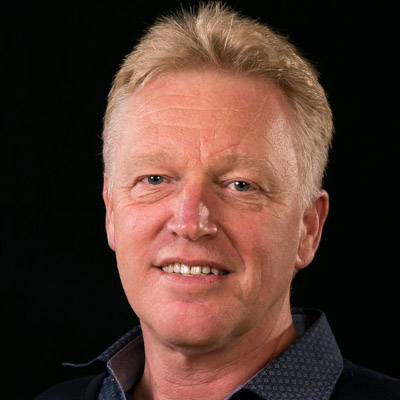
Frans Schepers
Managing Director
Rewilding Europe
Important milestones
Establishing a new ambition: “Outlook 2025”
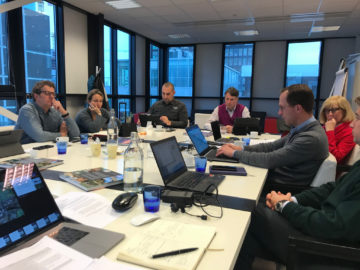
Having started in March 2018, we completed defining our new ambitions with an endorsement of the Supervisory Board on November 29 last year. Working towards 2025, we agreed to follow a growth scenario that is ambitious, yet at the same time consolidates and strongly builds on what we have achieved so far.
This growth scenario is based on a vision for 2025 where we see ourselves continue as a frontrunner in the European rewilding movement, playing a vibrant leadership role in demonstrating grounded, innovative approaches and rewilding impact. Rewilding areas will continue to lie at the core of our work, representing real and iconic places embodying our rewilding vision at a local level. Simultaneously, Rewilding Europe will continue to play a role in inspiring and supporting the wider rewilding movement as Europe’s preeminent rewilding pioneer, expert and driving force.
Our new, seven-year ambition is characterised by numerous tangible targets and outputs, framed around our five main areas of work: wilder nature, wildlife comeback, nature-based economies, interest in the wild and scaling up. These new targets also mean that we will have to increase our income and capacity, and further optimise our way of working as a coherent, pan-European team.
We started working towards Outlook 2025 from the beginning of this year, and are well underway in planning, adjusting, growing and transitioning our teams to prepare for delivering this new ambition. You will find much more detailed information on Outlook 2025 in our Annual Review 2018, which will be published in May.
Two important new Rewilding Europe Capital investments
Just before the year-end, two new Rewilding Europe Capital loans totaling 800,000 euros were issued to support transformative rewilding initiatives in Portugal and Finland over the next three years. Support for nature-friendly businesses from the Natural Capital Financing Facility (NCFF), an initiative of the European Investment Bank and the EU’s LIFE financing instrument, will finance transformation of plantation forest to natural forest in Portugal and peat restoration in Finland.
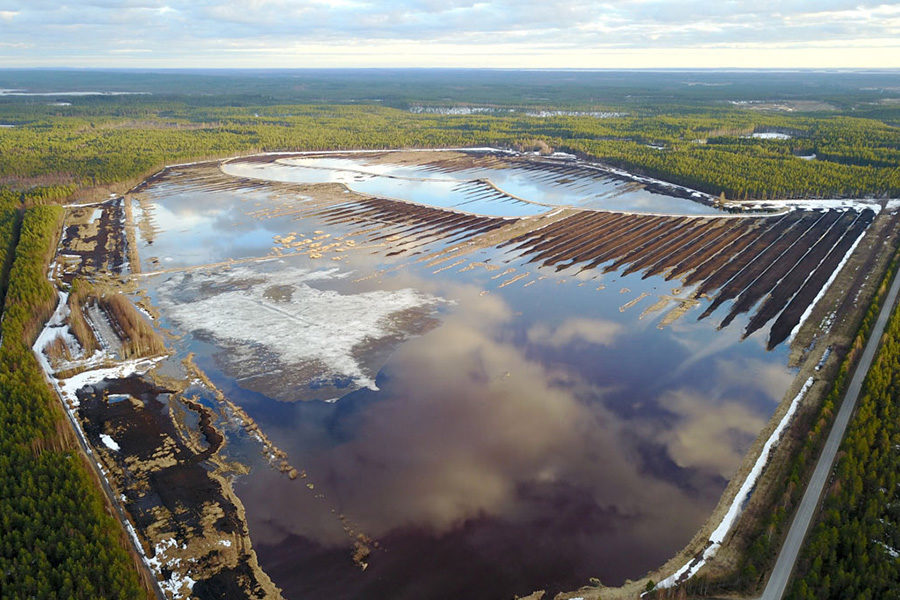
Peatland restoration
The Finnish projects will be managed by Snowchange, a NGO and European Rewilding Network member that specialises in the restoration and recovery of damaged landscapes caused by commercial exploitation, with a particular focus on sites formerly used for intensive forestry and peat mining.
By restoring degraded wetlands and boreal forests, this hugely exciting and transformative loan will lead to enhanced biodiversity and the creation of new carbon sinks across Finland. A scalable model, which takes account of the expertise and culture of indigenous Sámi communities, can mitigate climate change and benefit local stakeholders through the development of new nature-based business models.
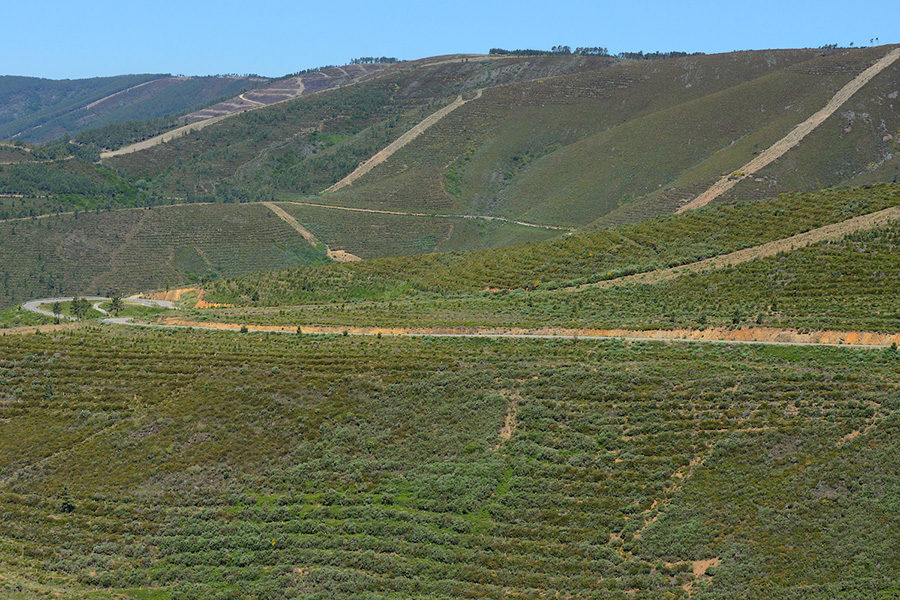
Forest transformation
The recipient of the Portugal-focused loan is Sociedade Agro-Florestal do Rio Maçãs, a start-up business founded in 2018 focused on securing and transitioning communal forests in northern Portugal into more natural forest habitats.
This new loan will diversify and promote native species forest management in Portugal. This, over time, will bring a financial return by allowing to blend sustainable timber harvesting with complementary commercial enterprises such as the provision of non-timber forest products, carbon offsetting, and nature-based tourism experiences.
New members European Rewilding Network
Since November 2018 three new members have joined the European Rewilding Network:
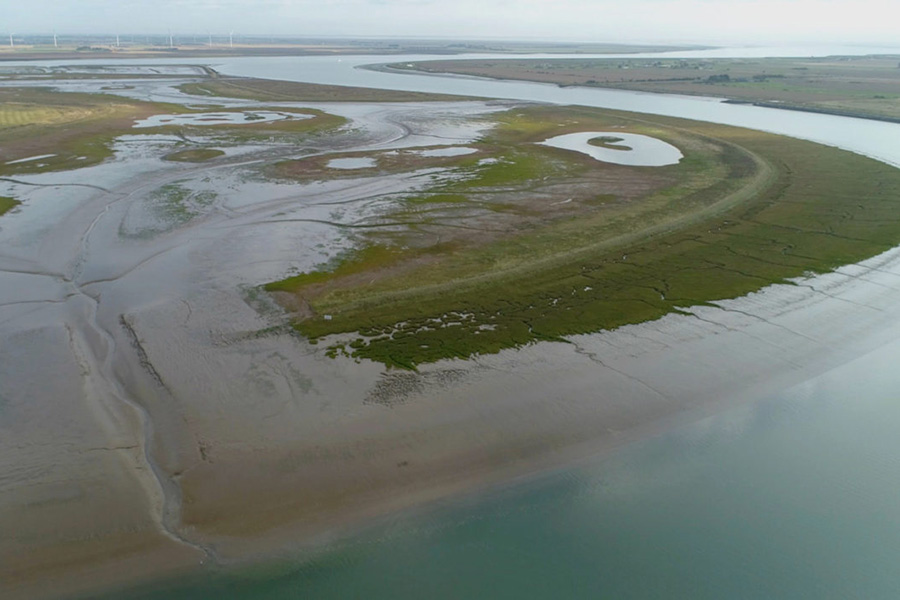
Wallasea Island Wild Coast
From the United Kingdom, we have welcomed the Wallasea Island Wild Coast project. Comprising 850 hectares of tidal saltmarsh and mudflats, brackish lagoons, grazing marsh and freshwater grassland, this landmark conservation and engineering project represents the largest man-made marine wetland area in the United Kingdom.
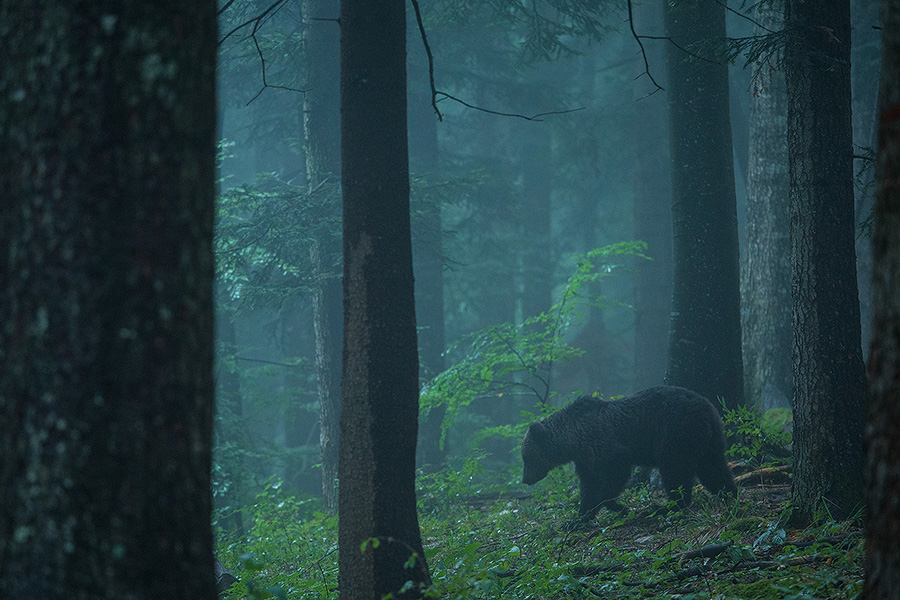
Living on the Edge
From Austria, we have welcomed the Living on the Edge project. The aim of this Austrian multimedia initiative is to raise awareness of large predators in Central Europe, and to promote the co-existence of humans, wildlife and wild nature.
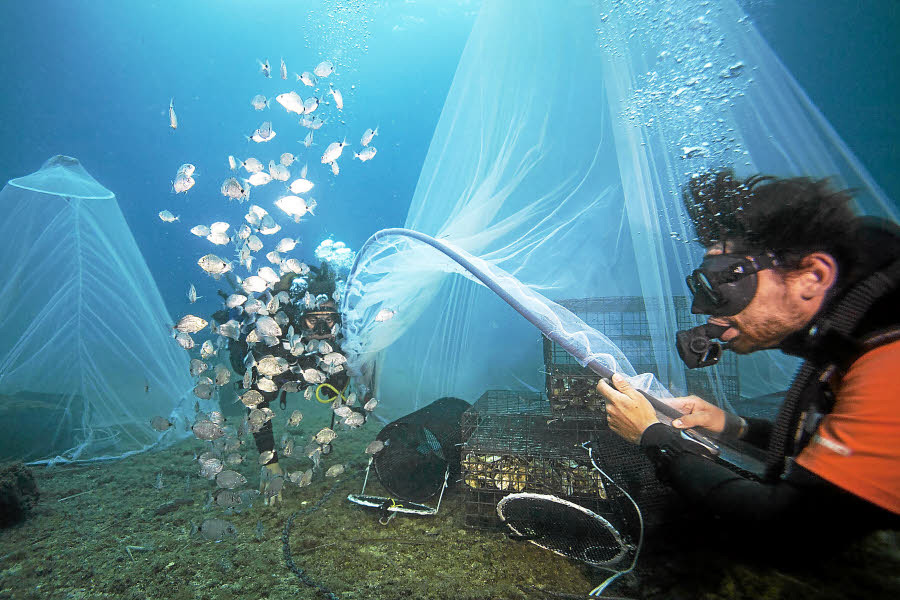
BioRestore
And from France, we have welcomed the BioRestore project. This very innovative project, focusing on the restoration of marine fish populations in the Mediterranean, takes the number of pan-European network members to 68 (including Rewilding Europe’s eight operational areas), representing 27 different countries.
Mapping rewilding potential
In a unique partnership with our policy and scientific partners (WWF, BirdLife, EEB and iDiv), we are making good progress towards promoting the European restoration agenda. Apart from important scientific publications on rewilding in prestigious scientific magazines, first results were presented at a side event during the CBD Conference of Parties in Egypt in November, in particular related to the development of a map showing rewilding potential in Europe.
Significant progress was made with a technical workshop in Brussels, where experts from across Europe were able to provide further input for this map to ensure a wide support base. Scientists from all over Europe are contributing to the design of this map, which will be published in autumn 2019. We hope it will provide important input for the EU Biodiversity Strategy post 2020.
Rewilding conference in Cambridge
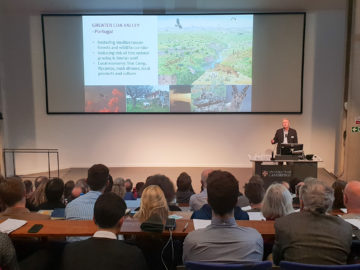
On January 11 and 12, a well-visited and exciting rewilding conference was organised by the Cambridge Conservation Forum at the Zoological Department of the University of Cambridge. Rewilding Europe was well represented, with a plenary presentation about our work, and separate seminars on natural grazing and rewilding enterprise. This resulted in great exposure for our work, generating a lot of positive feedback and many new contacts and connections in the UK and abroad, which will help us to further develop our initiative.
One of Rewilding Europe’s strengths is its hugely diverse, multi-cultural and coherent team that now spans an entire continent. Together, we represent a highly motivated group of people with a wide variety of professional backgrounds, talent, expertise and experience.
Organisation
Changes in our central team
We have started a transition in our central team, partly based on a desire to prepare for continued growth, and with some existing staff taking different roles. Raquel Filgueiras (Portugal) joined our team on March 25 as the new Head of Rewilding. She replaces Wouter Helmer, who will lead a new LIFE project on natural grazing (see below) and pioneering rewilding enterprise, such as those related to dam removal.
At the same time, Laurien Holtjer (the Netherlands) started as our new Head of Communications, partly taking over from Mei Elderadzi, who will now focus entirely on the European Rewilding Network. Rob Stoneman (UK) will join our team from May 1 as a rewilding area coordinator, taking over from Alexandros Karamanlidis, who will assume a new role as our Scientific Coordinator.
Simon Collier, who was heading the European Safari Company, has decided to leave and develop his own company, while still being connected to us. His role has been taken over by Aukje van Gerven, who was already working for the European Safari Company. Yvonne Kemp, who was assisting with the European Rewilding Network, has emigrated to Latin America; her work will be taken over by Mei Elderadzi.
Last but not least, Andrea Frey (Swiss) has joined our team to help with building a network in Switzerland, while Iris de Winter has joined us to lead “Rewilding Retreats”, specially designed visits to rewilding areas (see below).
This all means that the Central Team of Rewilding Europe has changed considerably, with these new positions and the new tasks of existing staff. We believe these are all important and necessary changes to prepare us for the new ambitions that we have set ourselves, and further develop our initiative towards our vision for 2025. We sincerely welcome newcomers, and thank all colleagues and staff for their great work. Biographies of all new employees can be viewed on our website.
For reasons of space and capacity, we have also increased and improved our office facilities at our home base in Nijmegen.
Raquel Filgueiras
Head of Rewilding
Laurien Holtjer
Head of Communications
Rob Stoneman
Rewilding Area Coordinator
Iris de Winter
Major Donor Relations
Andrea Frey
Advisor Fundraising
Changes in local teams
Firstly, new legal entities with (partly) new boards have been established in four of our areas: Central Apennines, Swedish Lapland, Oder Delta and Western Iberia. All these new entities constitute Rewilding Europe’s main and preferential partners in these rewilding areas, with whom we have close ties and work together on a daily basis. It is great to see these local entities being empowered through new financial support (see below) and solid governance.
Secondly, the local teams saw many new employees coming on board.
- In Rewilding Portugal, Pedro Prata started leading the team, with Marta Calíx, Sara Casado Aliácar, Maria Betteghella and Kayte Phillips as brand new members.
- In Central Apennines, Mario Cipollone leads a team comprising Angela Tavone, Fabrizio Cordischi and Pietrantonio Costrino.
- In the Ukrainian Danube Delta, Mikhailo Nesterenko leads a team consisting of Kate Kurakina and Oleg Dyakov.
- And in the Southern Carpathians, Alexandra Sallay-Mosoi joined the team led by Mariana Druga.
All team members can be viewed in the area sections on our website.
Marta Calíx
Project Manager, Western Iberia
Sara Casado Aliácar
Rewilding Officer, Western Iberia
Maria Betteghella
Communication Officer, Western Iberia
Kayte Phillips
Finance and Administration Officer, Western Iberia
Angela Tavone
Communications Officer, Central Apennines
Fabrizio Cordischi
Field Officer, Central Apennines
Pietrantonio Costrino
Bear Ambassador, Central Apennines
Kate Kurakina
Communications officer, Danube Delta, Ukraine
Oleg Dyakov
Field officer, Danube Delta, Ukraine
Alexandra Sallay-Mosoi
LIFE Project Assistant, Southern Carpathians
Working as one European team
Hosted by Rewilding Portugal, we gathered in Guarda from April 1 to 5, discussing our new joint ambitions and how to deliver them. Combined with an educational visit to the Greater Côa Valley rewilding initiative, this turned out to be a very productive gathering, enabling us to share and discuss many of our ambitions, challenges and opportunities.
Building the brand of our initiative
One of the topics that we discussed in our Portugal meeting was a more concerted and aligned brand identity and branding policy across our rewilding areas and for the different rewilding area organisations. We presented and agreed on a consistent set of logos for each of the rewilding entities, clearly connected to the overall initiative.
In addition, we proposed trademarks for each of the rewilding areas, acting as a local brand that all involved partners could identify themselves with and clearly connecting the different rewilding areas across Europe with each other in a consistent style.
All these logos and trademarks, with some small alternations, were accepted by the local teams and we will publish them for the first time in our Annual Review 2018 in May. Stay tuned!
Financing our work
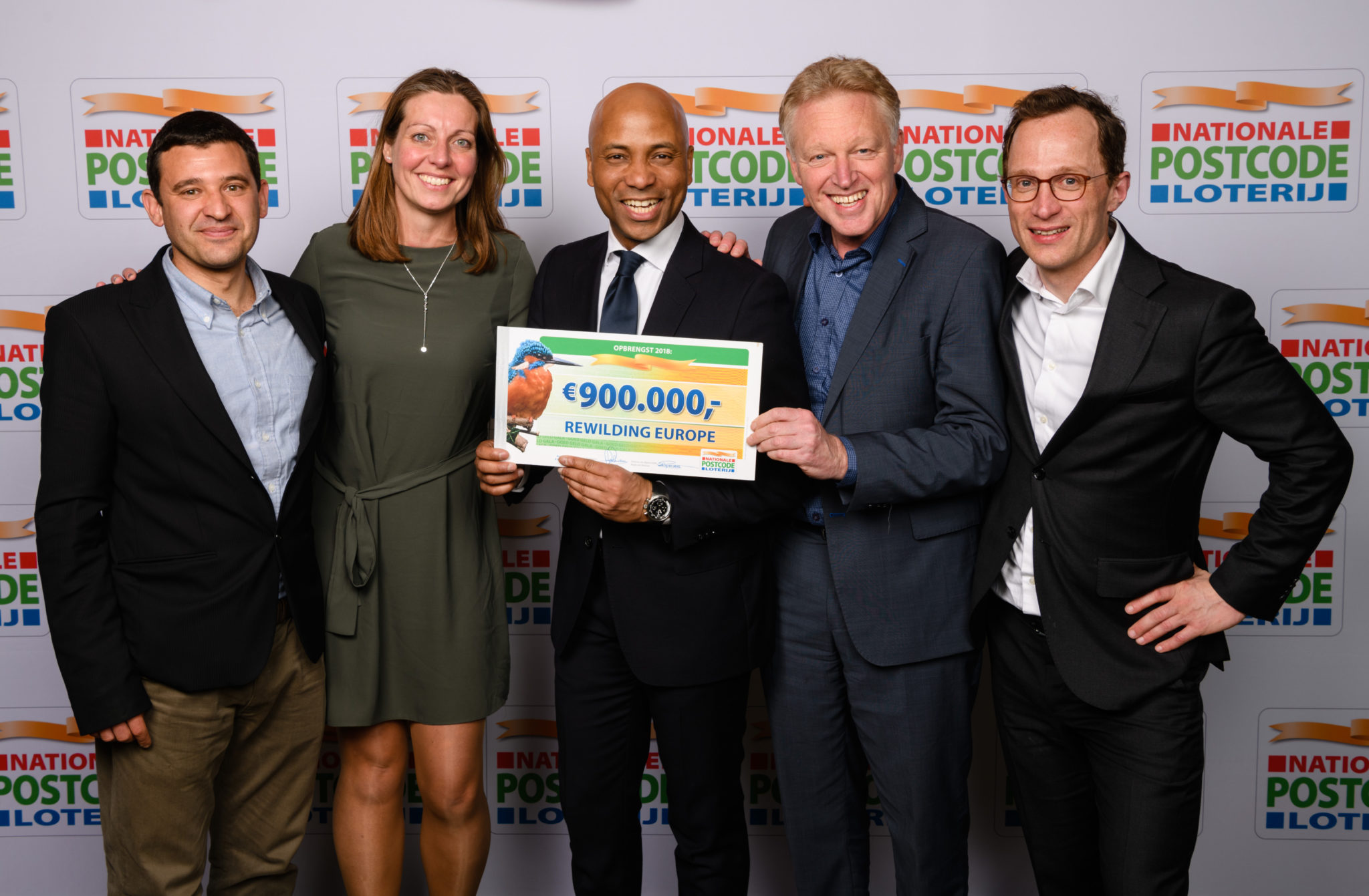
Dutch Postcode Lottery
The first half of this year saw us make significant progress in fundraising for our work. First of all, we were extremely surprised by a substantial increase in support from the Dutch Postcode Lottery, which was announced at the Goed Geld Gala in Amsterdam on March 4. As a beneficiary, the annual contribution from the lottery was upgraded to 900,000 euros per year.
We are obviously thrilled by this substantial additional support and the great trust that the lottery has placed in us and our work. The timing could not have been better, as we had just set our new ambitions for the years to come. This will now enable us to take big steps towards achieving this new ambition. Many thanks to the lottery players in the Netherlands who made this possible!
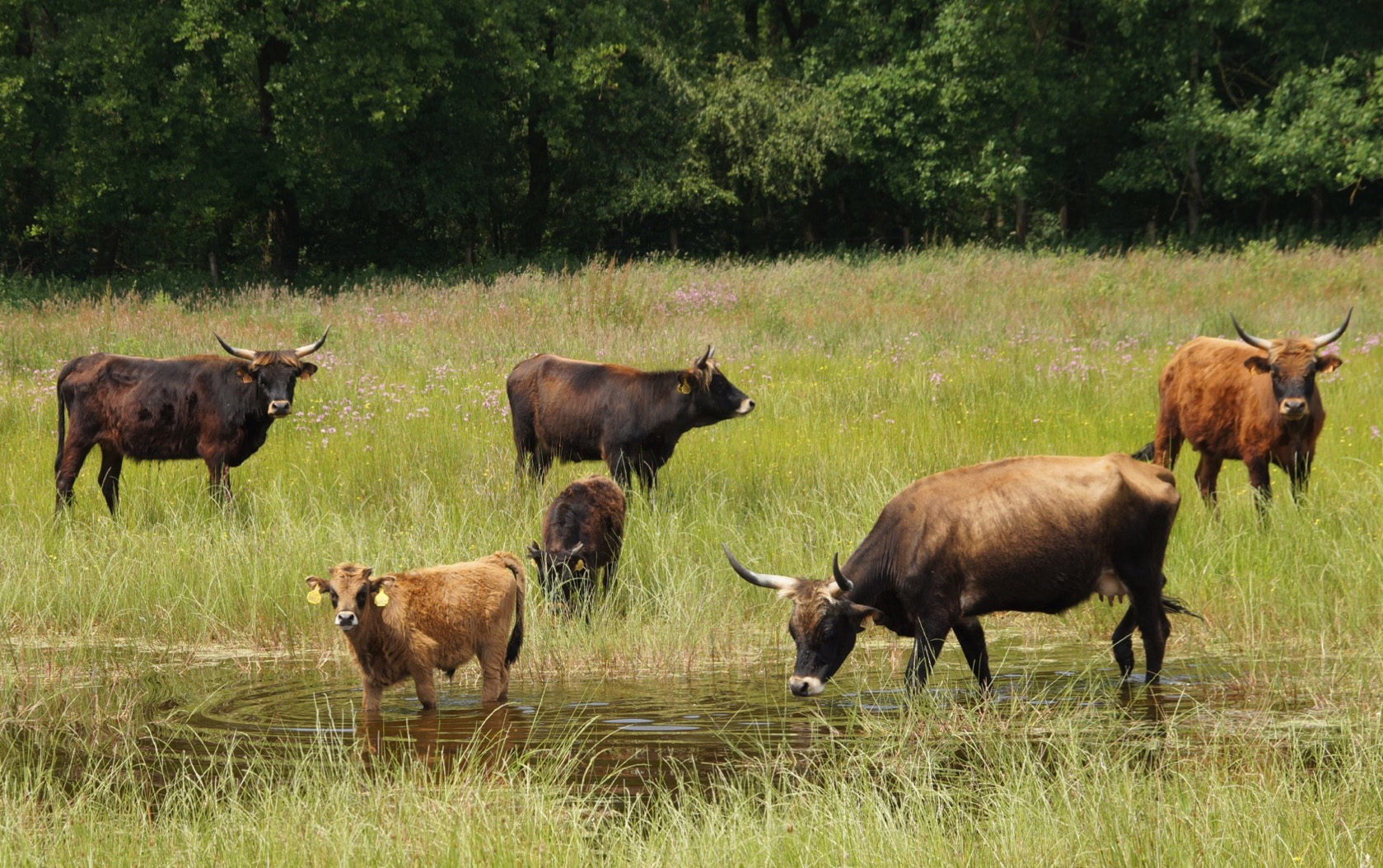
Two new LIFE projects kicked off
From March 11 to 13, experts from all across Europe gathered in the Gelderse Poort rewilding area in the Netherlands, to start a preparatory project on defining and comparing different grazing management models. Coordinated by Rewilding Europe, the three-year project will hopefully lead to increased EU legislative support for more natural grazing. Rewilding Europe received 500,000 euros from the European Commission, covering 60% of the costs. Eight project areas are involved, including five of our rewilding areas.
From March 26 to 28, a second project called LIFE Wolflux kicked off in Portugal, working to expand the range of the Iberian wolf from northern Spain into the Greater Côa Valley. This project sees Rewilding Europe partner with Rewilding Portugal, ATNatureza and other local organisations such as Zoo Logical and the University of Aveiro. The LIFE contribution is 1.64 million euros, which covers 75% of the costs.
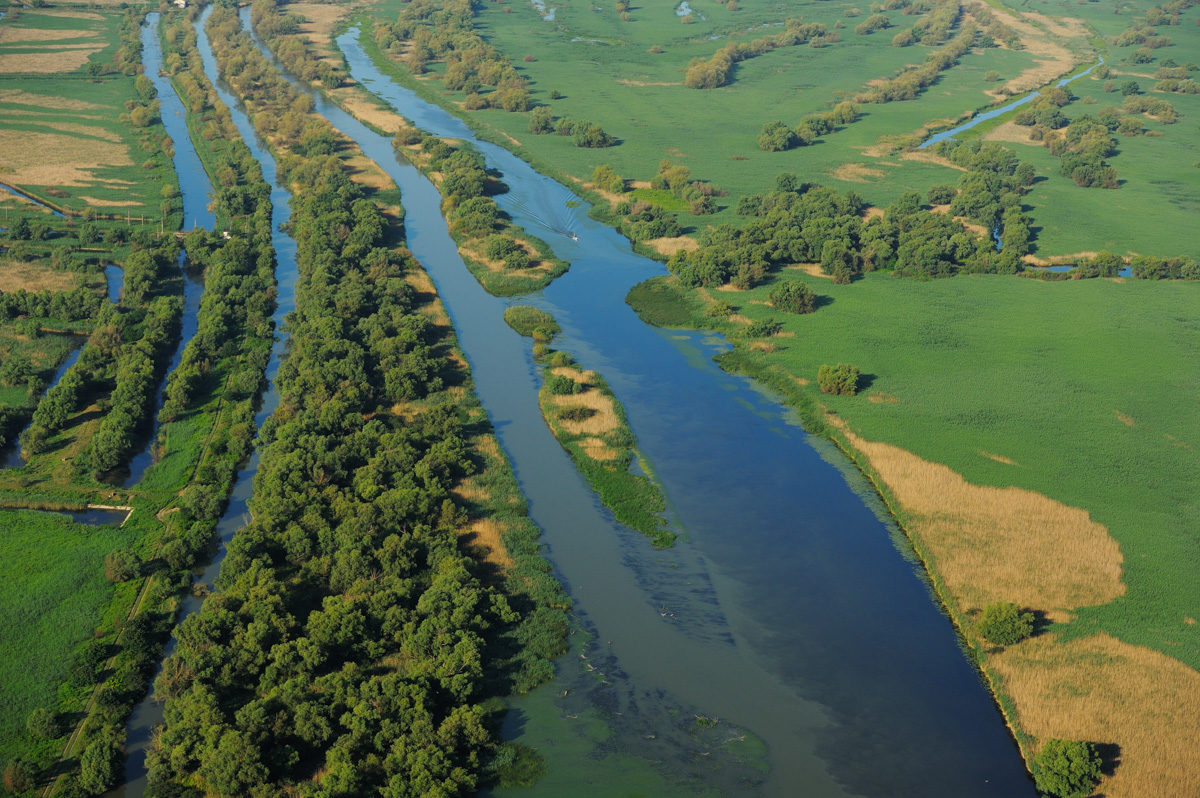
Endangered Landscapes Programme x 2
Both the Danube Delta and Western Iberia saw work start within the framework of the Endangered Landscapes Programme, established thanks to a 30 million USD investment from Arcadia, the UK-based charitable fund of philanthropists Lisbet Rausing and Peter Baldwin.
The two rewilding areas became part of the programme in 2018. This substantial support will enable Rewilding Europe and local partners to develop a 120,000-hectare wildlife corridor in the Greater Côa Valley in northern Portugal. By scaling up current rewilding efforts in Western Iberia, this will transform a region with high levels of rural depopulation and species loss into one with new opportunities for both wild nature and people. The 2.6 million euro grant complements another for 2.1 million euros for a record-breaking wetland and steppe restoration project in the Danube Delta, recovering nearly 40,000 hectares of wetlands and steppe area.
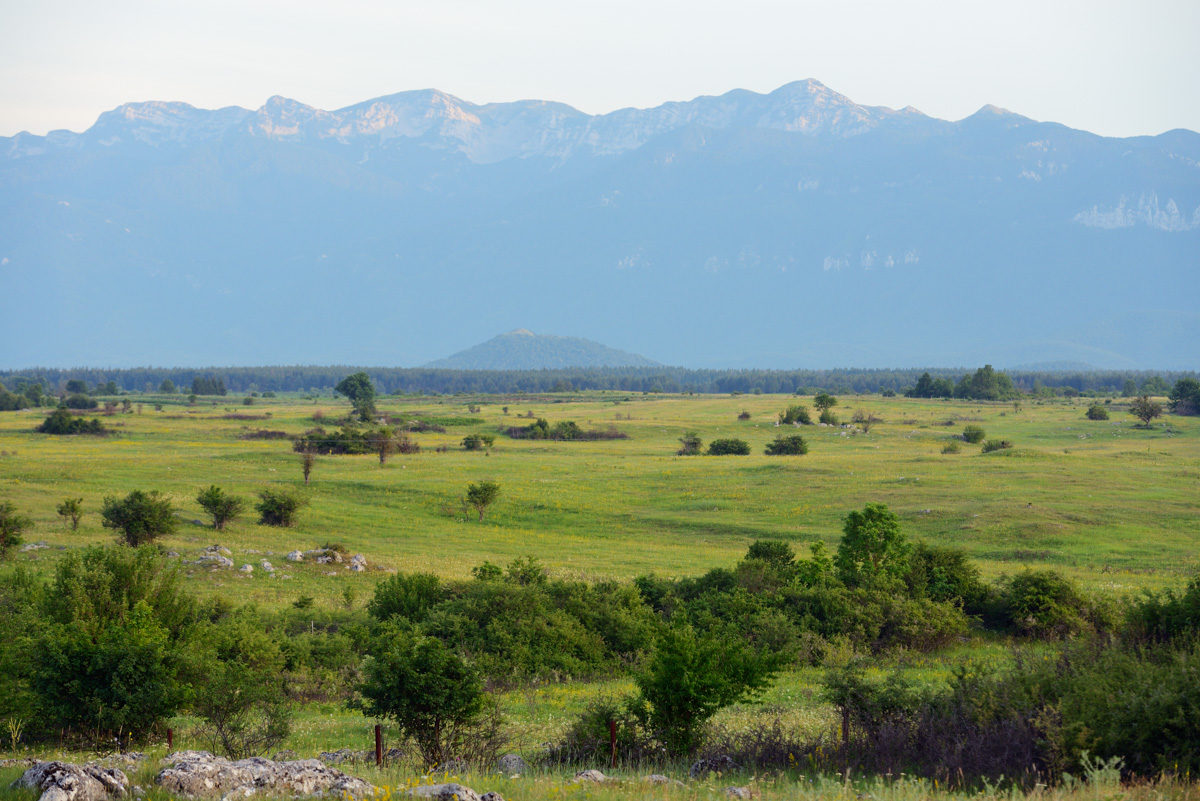
Interreg
An Interreg project called “Wildlife Economy” aims to support European regions in the delivery of sustainable growth by enabling them to build better policies for regional economic development, rooted in the natural assets of their regions.
The exchange of best practice will see various examples of nature-based economies showcased, thereby inspiring developments on the ground, as well as replications in other regions. Six different countries are involved, including a number of rewilding areas like Velebit Mountains, Western Iberia and Swedish Lapland. The contribution for this project from the EU is nearly 1.4 million euros with Rewilding Europe receiving nearly 160,000 euros. The project will start in January 2020.
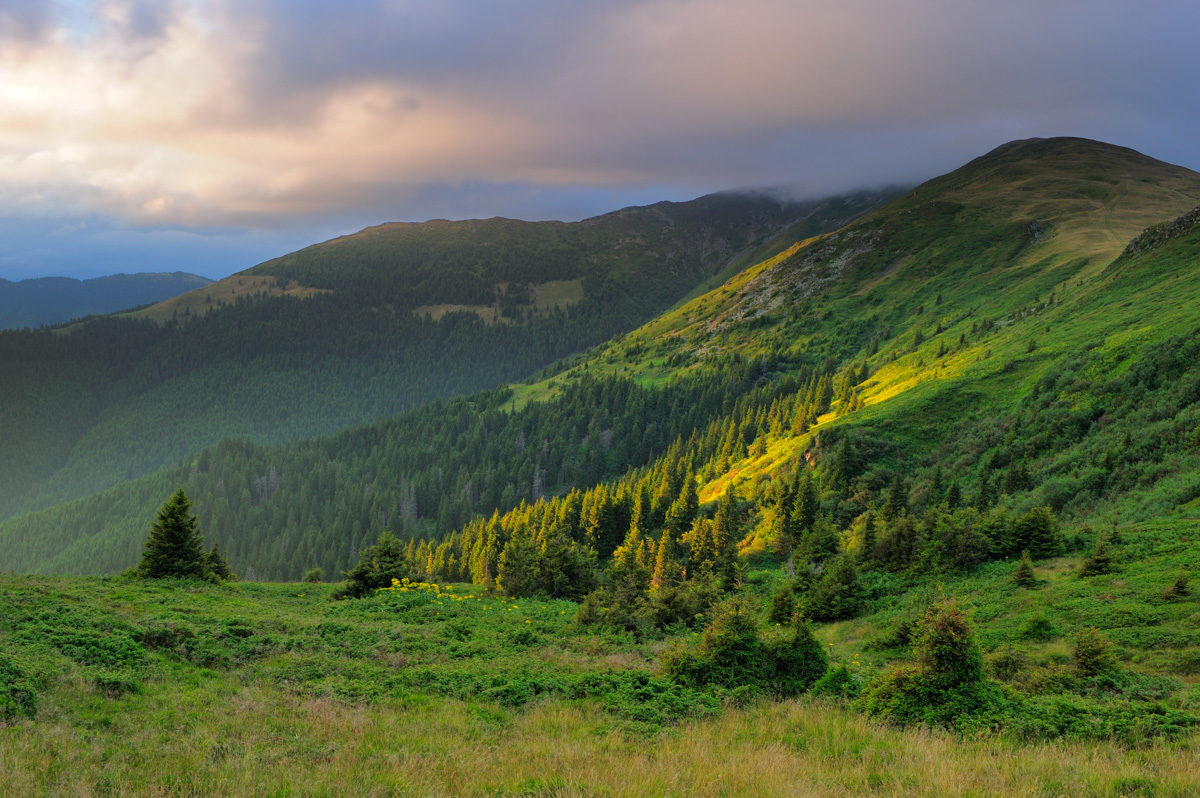
Terra Nova
Is it possible to identify the changing dynamic between natural and cultural landscapes over space and time? Can we establish a natural reference for “European landscapes” to evaluate current and future landscape planning, ecosystem restoration and rewilding? Or are both systems so intertwined that the separation of the human from the natural is too complex?
These are the key questions addressed by the second EU funded project called Terra Nova. Starting in June 2019, this will see a large group of researchers from across Europe work together to improve our long-term understanding of landscape histories and land use strategies in Europe. Ultimately this project will contribute to the identification of major historic shifts in resource use and energy regimes, providing options for the future transition to a low carbon society. Terra Nova involves 25 partners from 134 different European countries. Total project funding is nearly 4.2 million euros, of which Rewilding Europe is receiving 265,000 euros.
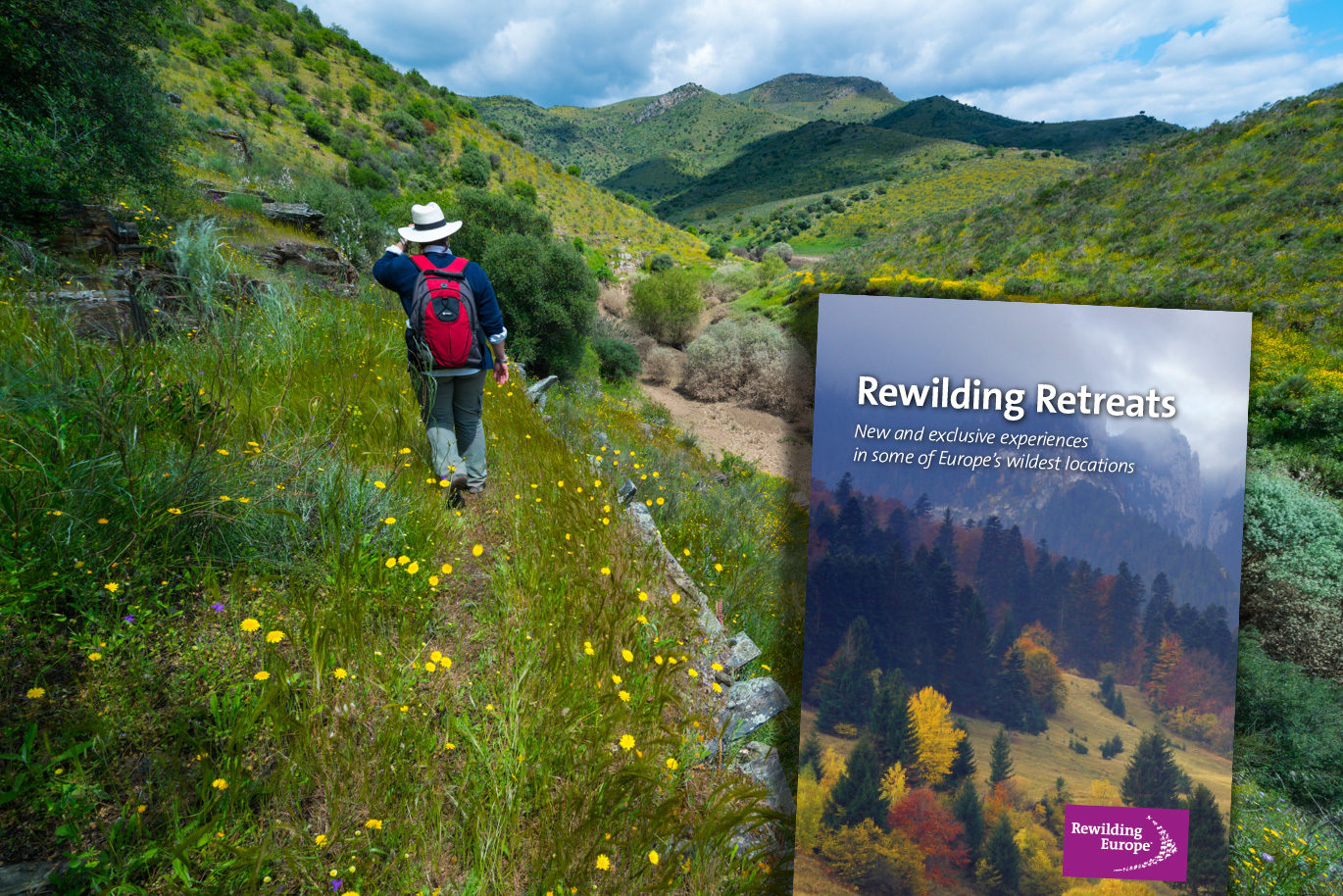
Rewilding Retreats
This is a new and exclusive range of travel experiences in some of Europe’s wildest locations. Curated by the European Safari Company and especially designed for our supporters, this thrillingly immersive programme gives the opportunity to travel to the heart of our operational areas. Kicking off with the Southern Carpathians, Western Iberia, and the Central Apennines, further destinations will be added over the coming months.
During a Rewilding Retreat, visitors will not only enjoy some of Europe’s most iconic wild nature and breathtaking landscapes, but also learn first-hand about our practical rewilding efforts. Guests will be accompanied by our local partners and experts, who will present our work and ensure your experience is both exciting and educational.
In short, a Rewilding Retreat represents a unique opportunity to learn about who we are, what we do, and why we do it. Each Rewilding Retreat has a carefully crafted itinerary, with start dates throughout the year. Contact info@rewildingeurope.com for receiving the brochure. Each retreat will be guided by Dr. Iris de Winter, an experienced conservationist and travel guide.
Rewilding areas
Western Iberia
Efforts in the last few months have focused on the start of a new initiative, with substantial funding secured for the Greater Côa Valley over the next five years (see above). A new legal entity called Rewilding Portugal was registered, with a new board assigned consisting of Paula Sarmento (chairman), Hein van Beuningen and Cristina Branquinho. An office building was kindly offered by the Municipality of Guarda, from where the new team will work.
With these structures and funding in place, the brand new team has started working on an ambitious programme for the years to come. This will focus on the establishment of a 120,000-hectare wildlife corridor, the purchase of land in three core areas, promotion of wildlife comeback, support for local entrepreneurs, and development of the area as a nature tourism destination.
Velebit Mountains
In Velebit we were excited to renew our concession for the management of a large hunting area (in fact two separate concessions), becoming the single owner of nearly 17,000 hectares of land. This has allowed us to start developing a new management plan for the area, which will focus on the further recovery and monitoring of wildlife populations through law enforcement and restockings (for example with red deer) – this will improve the prey base for local large carnivores (brown bear, Eurasian lynx and wolf all reside here).
A second important activity for Velebit Mountains is the growth of rewilding enterprises, in particular related to wildlife watching and other forms of nature tourism, with more offerings through the European Safari Company.
The expansion of natural grazing in Lika Plains will also be a key focus for this year.
Central Apennines
As in Portugal, much of the work here focused on establishing a new legal entity called Rewilding Apennines. The new board consists of Piero Visconti (chairman), Bruno D’Amicis and Annette Mertens – all very familiar with the Central Apennines, and with a long-standing reputation in conservation, science and communications in Italy and abroad.
The work of the Rewilding Apennines team is already in full swing, focusing on the establishment of wildlife corridors through a reduction of threats and barriers between the national parks and reserves. A huge amount of work has been done to fence out beehives and chicken coops to reduce human-bear conflict, as well as to remove old fences that stop Marsican brown bears and other wildlife moving around freely. A water tank, where a mother bear and two cubs tragically drowned in November last year, was finally made bear-safe. Work continues to identify other potentially dangerous tanks and wells.
Southern Carpathians
Huge efforts were focused on preparing for new bison releases in both Poieni and Armenis release sites. However, additional procedures in Romania have hampered the timely arrival of at least 23 European bison to the area. Despite the fact that the European Commission was highly positive about the progress of the LIFE Bison project in their mid-term report released in December, we are now unsure about the progress we can make in 2019, but still hope for a positive outcome.
Despite these new challenges, the team remained vibrant, with lots of activities linked to the reintroduction programme, including a bison photo exhibition at the Bucharest Photo Festival, the second year of a bison school club programme in a range of towns and villages in the region, and – last but not least – mitigating and reducing human-bison conflict in the area. The Bison Hillock Task Force – involving young professionals from all over Europe – carried out a tremendous amount of fieldwork, monitoring behaviour of the bison in particular.
Danube Delta
As in Portugal, the teams in Ukraine, Romania and Moldova geared up to start the large restoration initiative funded through the Endangered Landscapes Programme. On April 12 the project was successfully launched in Vylkovo, a small village in the Ukrainian part of the delta, with all partners attending, including the directors of the Biosphere Reserve from the three countries.
Big news was the final arrival of a transport of 23 Konik horses from Latvia. After a preparation time of no less than 16 months, the herd was translocated safely and will be split into two groups after a quarantine period of four weeks. In April these already heavily rewilded horses will be released in rewilding sites near Orlovka and on Ermakov Island.
A successful crowdfunding campaign, carried out in cooperation with WWF Netherlands, generated the necessary funds to remove 10 obsolete dams along the Kogilnik River in the Ukrainian part of the delta, leading to the recovery of habitats along 20 kilometres of river.
Rhodope Mountains
Our work in the Rhodope Mountains continues to progress strongly, with the further development of prey populations for large carnivores and scavengers through ongoing releases of red deer (21 in 2018) and fallow deer (114 in 2018), and the monitoring of their populations. These efforts now also extend to the Greek part of the Rhodopes, as we seek cooperation with authorities across the border. The number of wild grazing Karakachan and Konik horses is increasing, with 99 and 66 respectively at the beginning of this year.
Our conservation work on griffon vultures (95 breeding pairs in 2019, with 65 chicks hatched in 2018) and Egyptian vultures (20 pairs in 2018, of which 13 pairs raised chicks) is now really paying off. Such work involves artificial feeding to support both populations, anti-poisoning patrols, GPS collaring and efforts to reduce the use of veterinary drugs.
Oder Delta
A new legal entity called Rewilding Oder Delta is now underway, registered as an association in Germany, but with Polish members. The board consists of Stefan Schwill, Suleika Suntken and Artur Furdyna.
Restoration work carried out on the Ina and Gowienica rivers (and their tributaries) was carried out this winter, and will hopefully boost fish migration and populations of salmon, sea trout and sturgeon in the area. Rewilding efforts were boosted with a grant from the German Postcode Lottery aimed at reducing human-grey seal conflict in the Oder Delta region.
An amazing film about the Oder Delta was broadcasted by ARTE, showing the incredible wildlife comeback and the rewetting, reflooding and rewilding of this area.
Swedish Lapland
The year-end focused on the closing of and reporting on the three-year funded programme by the Swedish Postcode Foundation, which delivered positive results on river restoration, the safeguarding of reindeer migration routes, the development of a rewilding enterprise network, and establishment of a legal entity and team. The latter resulted in a new entity called Rewilding Sweden, with a charity account, to allow for future development of the initiative.
A portfolio of projects was developed and fundraising started to continue river restoration and the development of blue-green corridors, as well as to begin the restoration of natural grazing, wildlife reintroduction and other rewilding-related activities. Rewilding Sweden has established an ambitious programme for the years to come, focusing on different regions, themes and species.
